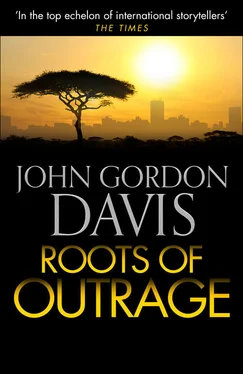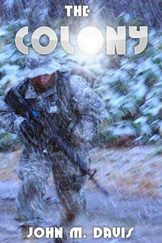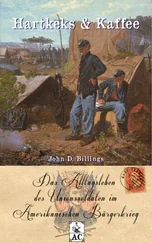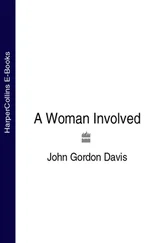Uproar. Outrage. Honourable Members wanting to leap over their benches and get their hands on the Honourable Member for Transkei.
Social upliftment? A whole society, a whole way of life, a whole livelihood was broken up and the pieces dumped out there in the bare veld beyond the horizon where it wouldn’t be seen. The convoys of government lorries arriving in Sophiatown, the hordes of policemen, the civil servants with their clipboards, the loudspeakers blaring instructions, the bulldozers rumbling, waiting. The army on standby. The poor people filing down the lanes to their designated vehicles, carrying their pitiful possessions, loading them on, climbing up; the waving goodbye, the weeping, the stoicism. ‘ Hurry up, please hurry along there, please! ’ Those who refused to cooperate were carried. ‘Come along, please, no nonsense now!’ The convoys rumbling out, the bulldozers rumbling in, the crunch of walls coming down, the dust rising up. The long convoys with their police escorts wound through Johannesburg, piled high with people and their belongings, out towards the sprawling black city of Soweto – bureau-speak for South Western Townships – past the vast rows of identical little joyless cottages, the spread-eagled squatter shacks, and on into the veld beyond. And awaiting them were row upon row of numbered wooden pegs in the ground, and government officials with their lists, allocating the little plots. The goods and chattels were dumped on the bare ground, and the vehicles turned back to Sophiatown for the next load of human despair.
‘Social upliftment?’ George Mahoney roared. ‘How about social cruelty ?! Dumped in the bare veld, their goods and chattels exposed to the elements! And for this piece of dirt these poor people must now start paying rent ! Dumped without a brick or a plank to start building even a shack! Dumped without toilets, with only one communal water-tap every so many hundred yards! Dumped without light, without fuel, miles from their employment, miles from shops, miles from the bus or train station. Dumped heartlessly, callously – and the Honourable Member has the towering brutality to call it social upliftment!’
He clutched his head: ‘Mr Speaker, the destruction of Sophiatown is not social upliftment, it is a stinking, reeking indictment of this government! And it shows this government is not only cynical and cruel, it is brainless … !’
Uproar.
‘It is stupid , Mr Speaker, to generate hatred amongst the people – especially as they are the majority! And it is stupid to bulldoze down one slum only to create another in the bare veld! But Sophiatown is only half the awful story – only a fraction of it! The rest of the story is even more tragic. Because the horror-show of Sophiatown is only the beginning of this government’s crazy plans of Grand Apartheid! As we speak the mad scientists in Pretoria are poring over maps and plotting more diabolical translocations of blackspots, more bulldozer jobs, more convoys, marking out more chunks of bare veld beyond the horizon upon which to dump its black population, to make more despair, more slums, more vice, more degradation, more bitterness, more hatred, more trouble for the white man in the future. Sophiatown is only the beginning! For as long as this government is in power we are going to see the heartbreak of Sophiatown repeated, from the northern Transvaal down to the Cape, from the Indian Ocean to the Atlantic we are going to see the heartlessness of Sophiatown repeated, whilst this government relentlessly, suicidally, systematically turns the vast majority of its citizens into its enemies, guaranteeing that they will one day rise up and destroy the white man who thrust such injustice upon them!’ He stabbed at the heavens. ‘This government is busily, stupidly, blindly, self-destructing!’
Boos and laughter from the government benches.
‘Self-destruction by the government, Mr Speaker,’ George Mahoney shouted, ‘would be fine with me! The sooner the better! But the tragedy of it is that in so doing they will destroy the whole country too …’
Beyond the poor-white houses of Umtata, beyond the Coloureds’ area, where the grand house of Mr Gandhi stood out like a sore thumb, was the black Anglican Mission school, St John’s College, or St John’s Porridge as it was called, for African porridge is made of ‘kaffir corn’, which is brown. By law the two schools were forbidden to have anything to do with each other; but twice a year they did play a cricket match, illegally, for that had been a tradition pre-dating apartheid.
The St John’s Porridge team was not much good, except for one boy called Justin Nkomo. He had no style whatsoever, but what he could do was hit a ball. Any ball: fast, slow, off-spin, leg-spin, googlies, full tosses. Justin stood there in his tattered khaki shorts, holding his bat like a club, as the best high-school bowlers came thundering up to the wicket, and Justin swiped and the ball went sailing up into the wide blue yonder. He always hit the ball in the meat of the bat; he never edged it or blocked it – he smote it. The only way to get him out was to catch him on the boundary. St John’s Porridge put Justin Nkomo in as opening bat, and he stayed there while the rest of his team were dismissed. ‘Get Nkomo!’ was the message the high school team received from their cricket coach. ‘He’s your kitchen boy, Mahoney, can’t you sabotage him somehow?’
It was in Luke’s final year at school, the year after Patti Gandhi disappeared in the bus bound for Natal, the year Luke became head prefect and was nominated for a Rhodes Scholarship, that Justin Nkomo became the Mahoney’s kitchen boy, in the sense that he exchanged a few hours’ household work every night for free board and lodging in the servants’ quarters. It was a fashionable act of charity to thus sponsor a St John’s College boy, but it was of questionable legality because under apartheid only bona fide full-time servants were allowed to reside on white property. Colonel Visser turned another blind eye, however, ‘as long as there’re no complaints, hey.’
Mrs Mahoney said to her son: ‘But, please, no cricket with this boy behind the garage wall; he’s here to work and study and I won’t have any familiarity.’
But there was cricket behind the garage wall and that was definitely illegal: bona fide kitchen boys don’t play cricket. Luke and Hendrik Visser, the police commandant’s son, and David Downes, the district surgeon’s son, had rigged some nets behind the garage and, when his mother wasn’t home, Luke would call Justin out of the kitchen to bat. They would hurl ball after ball down, but they could never knock those stumps over. Once David brought a real American baseball-bat along, to see what Justin would do with it, and he did the same. They tried to teach him a bit of style, to make him hold his bat straight, step forward to long balls, back for short balls, and though he tried, to be polite, within a minute he was back to his slugging style. They asked him how he did it and he replied it was ‘just easy’.
The other thing Justin Nkomo found easy was studying. His English was stilted when he first came to work for the Mahoneys – ‘Please scrutinise my endeavours, Nkosaan’ – but he soon became idiomatic. In the evenings, after he’d helped the cook, he was allowed to study at the kitchen table, for there was no electric light in the servants’ quarters, and he sometimes sent a message to Luke via the houseboy to come to the kitchen to help him. Luke found it easy to help him because; although they were both in their matriculation year, Justin’s curriculum was inferior. ‘Nkosi, what did Shakespeare mean when Macduff tells Macbeth that he “was from his mother’s womb untimely ripp’d”?’
Читать дальше












